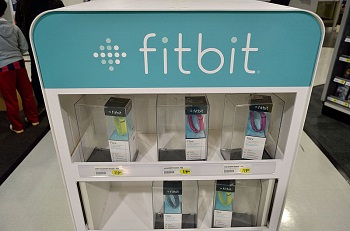According to a recent report from BI Intelligence, the company’s wearables will stay at the top of the market.
The wearable technology market has been growing in a direction that had not been predicted by many industry analysts, especially when it comes to the impact that smartwatches were supposed to have, following the release of the Apple Watch.
Fitness trackers have remained well in the lead of wearables and it is Fitbit that has been keeping ahead of the pack.
Fitbit recently reported its Q4 2015 revenue as being $712 million. That figure was hugely greater than the average prediction from analysts, which had been $648 million. Throughout all of last year, the company brought in a massive revenue of $1.86 billion. To do this, it sold 8.2 million of its wearable technology devices in the last quarter, bringing its total number of sales for 2015 to 21.4 million. According to analysts, that figure will only continue to rise, this year as the company adds more products to its offerings, such as its very own smartwatch, the Fitbit Blaze, as well as a more fashion-focused fitness band, the Fitbit Alta.
Currently, Fitbit’s wearable technology products are most popular in the United States, where it generated 75 percent of its revenue.
 That said, Europe, Africa and the Middle East, combined, made up 12 percent of the company’s revenue. Still, that represents a 191 percent year over year growth in Q4 for those regions, revealing a tremendous rise in popularity within those parts of the world. This indicates that 2016 may be seeing action in far greater markets than the United States. According to BI Intelligence research analyst, Jonathan Camhi, the company’s wearables are seeing considerable traction being gained outside the U.S.
That said, Europe, Africa and the Middle East, combined, made up 12 percent of the company’s revenue. Still, that represents a 191 percent year over year growth in Q4 for those regions, revealing a tremendous rise in popularity within those parts of the world. This indicates that 2016 may be seeing action in far greater markets than the United States. According to BI Intelligence research analyst, Jonathan Camhi, the company’s wearables are seeing considerable traction being gained outside the U.S.
Last year, the company’s focus was aimed at establishing and growing its Fitbit Wellness program. This allowed it to boost its healthcare market customer base by 1,000 in 2015. This shows the growing appeal of the wearable devices within that industry, as well.
Now, BI Intelligence has predicted that the most promising area for growth for these wearable technology devices will be within the health sector. As a number of trends form both among customers and professionals in the healthcare industry, the interest in these gadgets is expected to rise considerably.

 Nick Hurd, the international development minister, explained that the United Kingdom has placed itself “at the forefront of bringing the battle against extreme poverty into the digital era,” over the last decade. He also went on to add that “With more people in developing countries using mobiles than ever before, this partnership with the GSMA and its members will increase access to
Nick Hurd, the international development minister, explained that the United Kingdom has placed itself “at the forefront of bringing the battle against extreme poverty into the digital era,” over the last decade. He also went on to add that “With more people in developing countries using mobiles than ever before, this partnership with the GSMA and its members will increase access to 